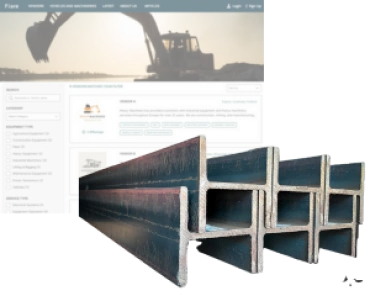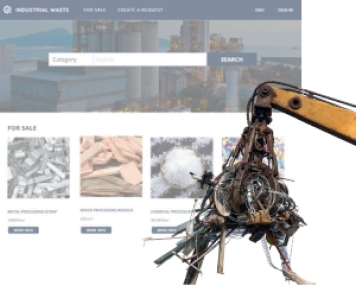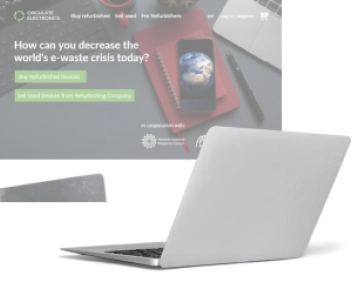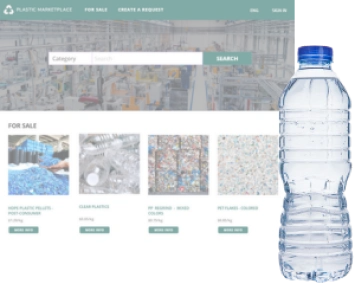Launch a Circular Economy Marketplace
Harness the data and seamless processes between the actors of the value chain through a circular economy marketplace.
Book a Demo
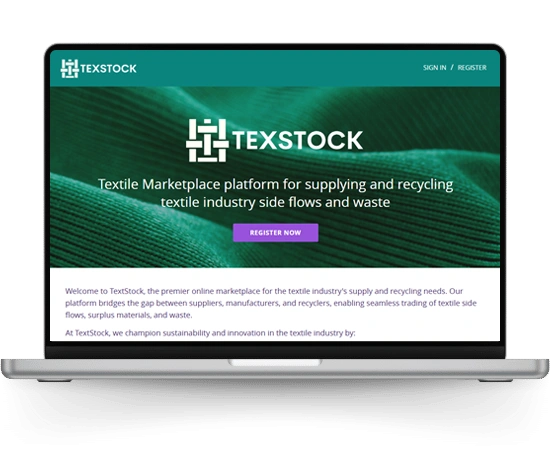
Overview
Accelerate Your Circular Economy Business With The Marketplace
- Bridge partnerships in the industry: Enable network of recyclers, waste management companies, and sustainability-focused organisations.
- Facilitate process and communication: Reach multiple actors, request proposals, compare offers and complete transactions.
- Build data and enable data sharing: Gather and organise indexed, structured data from the collection to the recycling process, including product data, recycling data, product origin, and CO2 impact.
“Our partnership with Fiare is successful: they understood our needs and are transforming our requirements into a powerful platform.”
Our Clients
Fiare Circular Economy Marketplace Platform
connecting all stakeholders, improving communication, and facilitating collaboration throughout the value chain.
Data-driven Insights
Access to comprehensive data and insights is critical for optimising the value chain process.
Identify bottlenecks, make informed decisions, and continuously improve workflows.
Transparent Traceability
Incorporate traceability features that allow tracking of material origin and the journey of materials from collection to recycling.
Track CO2 emissions and prioritise sustainability to promote accountability.
Seamless Resource Flow
Facilitate smooth flow of resources within the value chain, connecting suppliers, manufacturers, and recyclers.
Providing a centralised resource exchange hub and including structured data of materials to be recycled or products to be refurbished or reused
Real-time Communication
Our built-in messaging system enables real-time stakeholder communication, facilitating swift decision-making, problem-solving, and coordination.
Establish controlled data sharing between team members and partners. Allowing multiple individuals to handle the data effectively and ensuring that information is shared between different actors in a safe and secure environment.
Efficient Logistics
Integrate with shipping and logistics services, enabling streamlined transportation of materials and minimising environmental impact.
Ensure timely and reliable delivery, enhancing the overall efficiency of recycling operations.
Secure Transactions
Provide robust payment gateways and secure transaction processing to ensure a smooth and trustworthy experience
Explore revenue opportunities through transaction fees or commissions on successful transactions.
Harnessing the power of our platform, we understand the significance of optimising resource flow to establish a thriving circular economy ecosystem. With our revenue-focused features, you can streamline the value chain process, foster circular recycling, and unlock multiple revenue streams within your marketplace. Let’s create a sustainable and efficient ecosystem for a brighter future together.
Are You Ready To Start Your
Circular Marketplace?
Integrations
Create a multivendor marketplace that meets your needs. Integrations are practical tools that enhance your marketplace by automating and speeding up trade processes. Here are the most valuable integrations for increasing market share and service to our clients.
- Stripe
- Paytrail
- PayPal
- Klarna
- Cyber Source
- Worldpay
- Svea Payments
- Shipit
- Posti
- Schenker
- Webshipper
- HubSpot
- SAP
- Openimmo
- mobile.de
- CSV and XML feeds
- SendGrid
- MailChimp
- Google Analytics
- Google Tag Manager
- Semrush
- Hotjar
- Linkedin Analytics
- Quantcast Choice
- Leadfeeder
- Single sign-on (SSO)
- Google login
- LinkedIn login
- Facebook login
- Quantcast Choice
- Google ReCaptcha
- RipleyChat
- Leadoo Chatbot
- Pipedrive Chatbot
- Openimmo
- mobile.de
- CSV and XML feeds
- Gifty (gift cards)
- Issuu (magazines)
- Grexel (CORC Auto cancellation)
- TinyMCE (Text editor)
- Froala (Text editor)
- Jetnet data (Get Aircraft Model Specific Statistics)
- Asset API (Get Aircraft Model Specific Statistics)
- Klarna Widget
- Usercentric (CMP tool)
Book A Consultation with Fiare Experts
Please fill out the form or contact Kirsi.

+358 40 745 2100
kirsi.johansson(at)fiare.com

